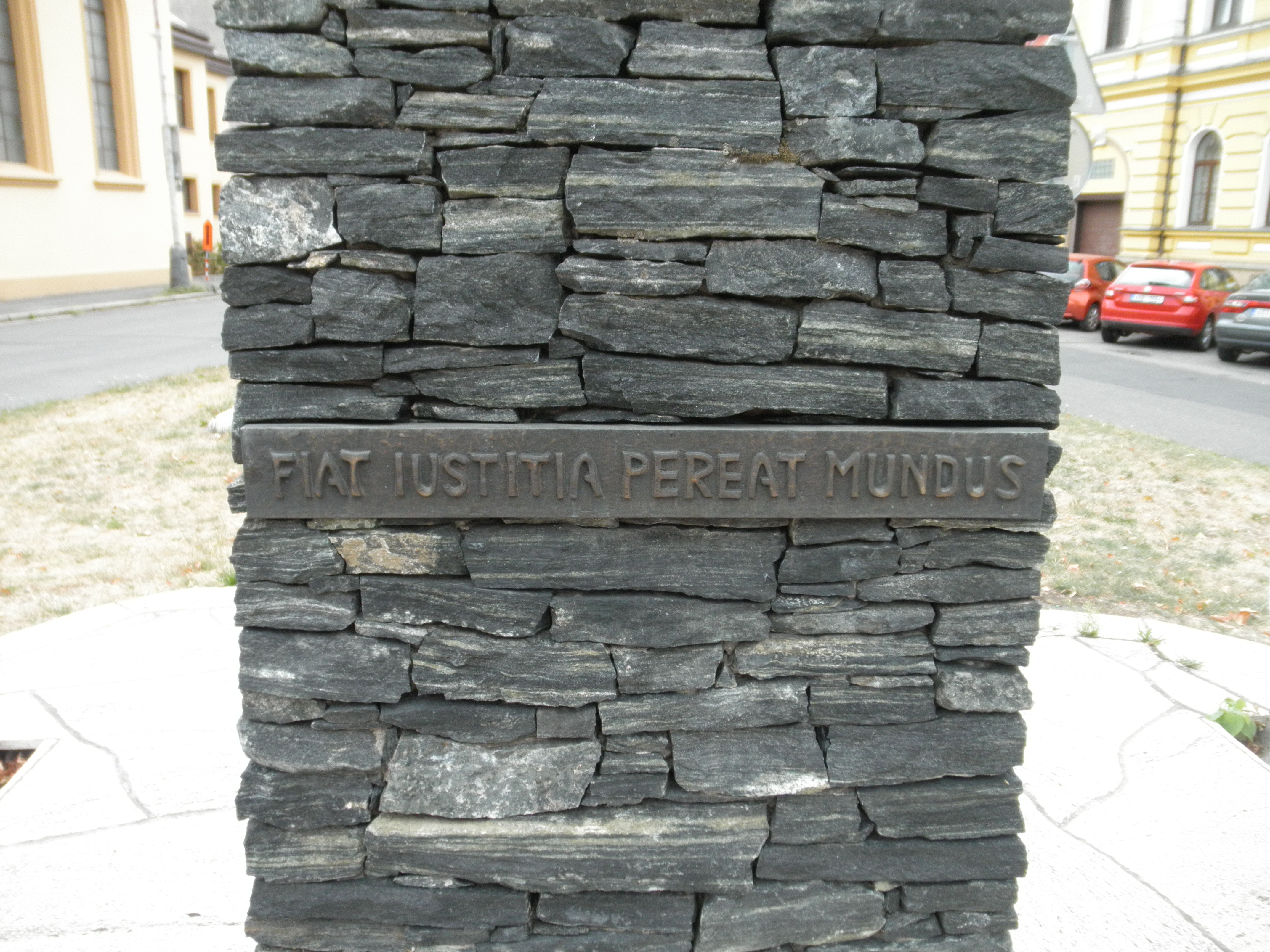Fiat justitia, pereat mundus on:
[Wikipedia]
[Google]
[Amazon]
 is a
is a
/ref> This sentence was the
/ref> It probably originating from Johannes Jacobus Manlius's book (1563). It is a maxim meaning that a just decision should be made at whatever cost in terms of practical consequences. An alternative phrase is ''
 is a
is a Latin
Latin (, or , ) is a classical language belonging to the Italic branch of the Indo-European languages. Latin was originally a dialect spoken in the lower Tiber area (then known as Latium) around present-day Rome, but through the power of the ...
phrase, meaning "Let justice be done, though the world perish".Fiat iustitia, pereat mundus – Oxford Reference/ref> This sentence was the
motto
A motto (derived from the Latin , 'mutter', by way of Italian , 'word' or 'sentence') is a sentence or phrase expressing a belief or purpose, or the general motivation or intention of an individual, family, social group, or organisation. Mot ...
of Ferdinand I, Holy Roman Emperor
Ferdinand I ( es, Fernando I; 10 March 1503 – 25 July 1564) was Holy Roman Emperor from 1556, King of Bohemia, Hungary, and Croatia from 1526, and Archduke of Austria from 1521 until his death in 1564.Milan Kruhek: Cetin, grad izbornog sabor ...
(1556–1564), who used it as his slogan, and it became an important rule to control the nation.SNU Law/ref> It probably originating from Johannes Jacobus Manlius's book (1563). It is a maxim meaning that a just decision should be made at whatever cost in terms of practical consequences. An alternative phrase is ''
Fiat justitia ruat caelum
''Fīat jūstitia ruat cælum'' is a Latin legal phrase, meaning "Let justice be done though the heavens fall." The maxim signifies the belief that justice must be realized regardless of consequences. According to the 19th-century abolitionist ...
'', meaning "Let justice be done, though the heavens may fall."
A famous use is by Immanuel Kant
Immanuel Kant (, , ; 22 April 1724 – 12 February 1804) was a German philosopher and one of the central Enlightenment thinkers. Born in Königsberg, Kant's comprehensive and systematic works in epistemology, metaphysics, ethics, and ...
, in his 1795 '' Perpetual Peace: A Philosophical Sketch'' (german: Zum ewigen Frieden. Ein philosophischer Entwurf), to summarize the counter-utilitarian
In ethical philosophy, utilitarianism is a family of normative ethical theories that prescribe actions that maximize happiness and well-being for all affected individuals.
Although different varieties of utilitarianism admit different charac ...
nature of his moral philosophy, in the form , which he paraphrases as "Let justice reign even if all the rascals in the world should perish from it."
Ludwig von Mises
Ludwig Heinrich Edler von Mises (; 29 September 1881 – 10 October 1973) was an Austrian School economist, historian, logician, and Sociology, sociologist. Mises wrote and lectured extensively on the societal contributions of classical liberali ...
wrote in ''Human Action
''Human Action: A Treatise on Economics'' is a work by the Austrian economist and philosopher Ludwig von Mises. Widely considered Mises' ''magnum opus'', it presents the case for laissez-faire capitalism based on praxeology, his method to under ...
'', "The utilitarian economist does not say: Fiat justitia, pereat mundus. He says: Fiat justitia, ''ne'' pereat mundus." (=Let Justice be done, so that the world won't perish, or, Let justice be done, and the world not perish).
See also
*, a similar phraseReferences
{{Reflist 16th-century neologisms Brocards (law) Latin legal terminology Latin quotations Ferdinand I, Holy Roman Emperor Latin mottos